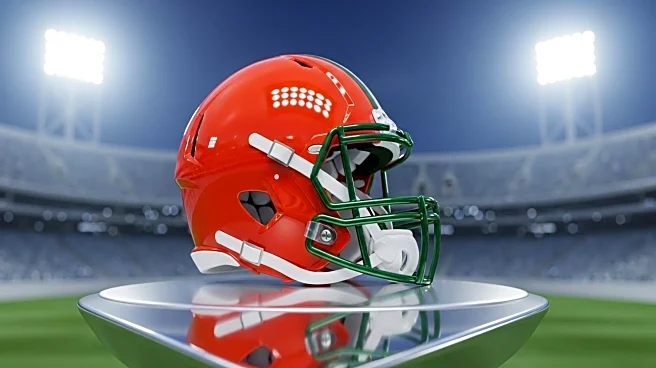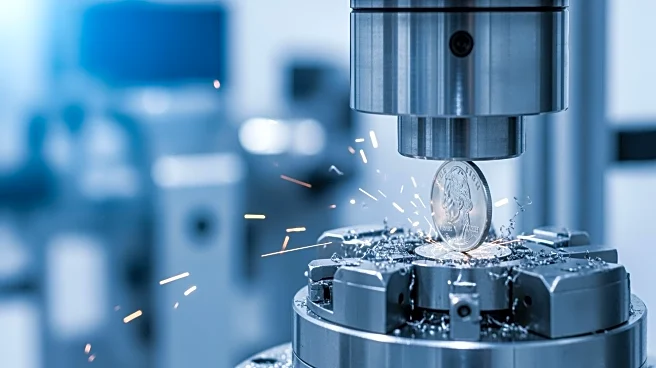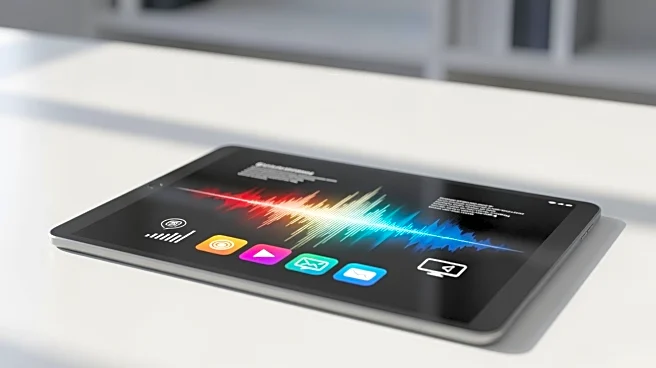What's Happening?
The Miami Hurricanes football team continues to play its home games at Hard Rock Stadium, located in Miami Gardens, approximately 15 minutes north of downtown Miami. This arrangement has been in place since 2008, following the demolition of the historic Orange Bowl. The University of Miami's campus is situated in Coral Gables, over 20 miles south of Hard Rock Stadium, necessitating travel for students attending home games. Hard Rock Stadium is a multi-purpose venue that hosts Miami Dolphins games, Super Bowls, WrestleMania, and other major events. Despite attempts to build an on-campus stadium, such efforts have faced significant opposition from local residents and lawmakers, particularly concerning a proposed stadium in Tropical Park. The proposal was heavily contested, leading to the creation of a 'Save Tropical Park' campaign by residents.
Why It's Important?
The absence of an on-campus stadium for the Miami Hurricanes highlights logistical challenges for students and fans, impacting attendance and school spirit. Playing at Hard Rock Stadium, a venue shared with professional teams, underscores the university's reliance on external facilities, which may affect the team's identity and community engagement. The ongoing debate over building a new stadium reflects broader issues of urban planning and community resistance, illustrating the complexities of expanding sports infrastructure in residential areas. The situation also affects local economic dynamics, as stadium events contribute to Miami Gardens' economy rather than Coral Gables.
What's Next?
For the foreseeable future, the Miami Hurricanes will continue to play at Hard Rock Stadium. Any future attempts to establish an on-campus stadium will likely require overcoming significant community opposition and securing local government approval. The university and its supporters may need to explore alternative solutions to enhance the game-day experience for students and fans, potentially through improved transportation options or community engagement initiatives. The ongoing investigation into the business dealings of a key stadium proponent may further delay or complicate future stadium plans.
Beyond the Headlines
The debate over the Miami Hurricanes' stadium situation raises questions about the balance between sports development and community interests. It highlights the ethical considerations of imposing large-scale infrastructure projects in residential areas, where local opposition can be strong. The situation also reflects broader cultural shifts in college sports, where the location and accessibility of facilities can significantly impact team dynamics and fan engagement. Long-term, the university may need to reassess its approach to sports infrastructure to align with community values and urban development trends.










